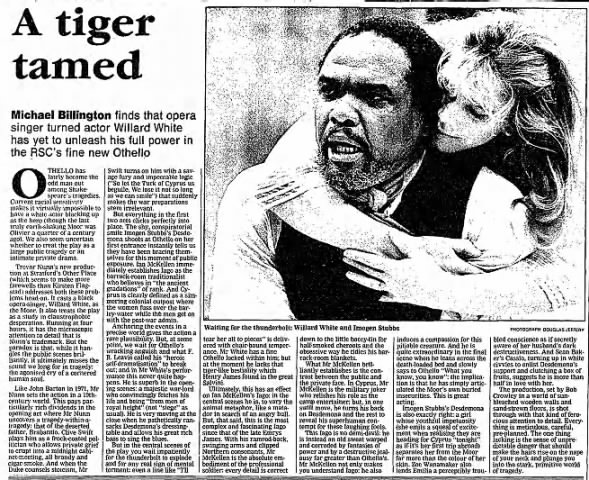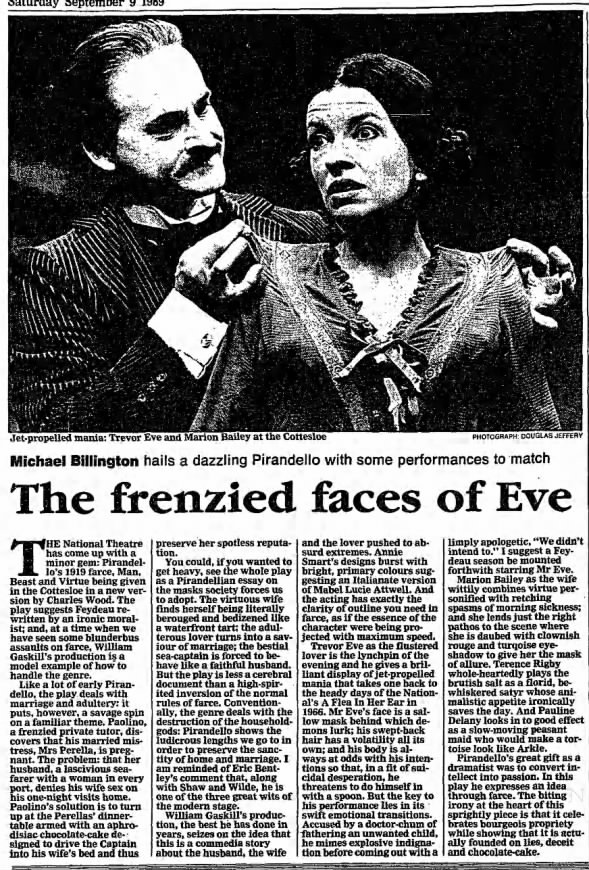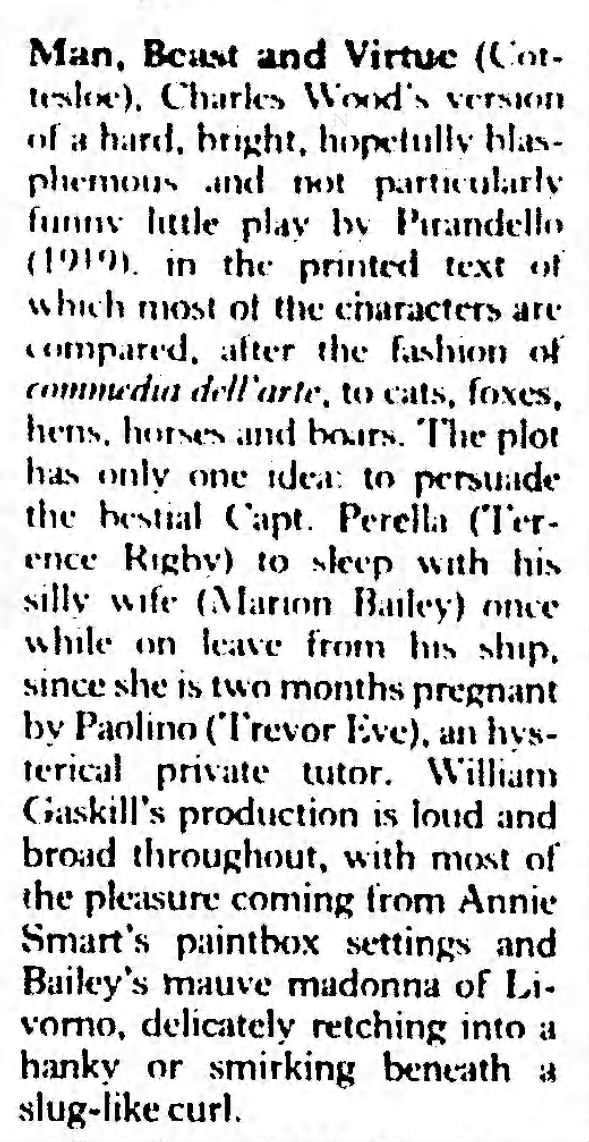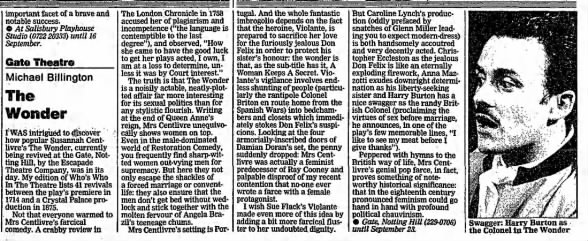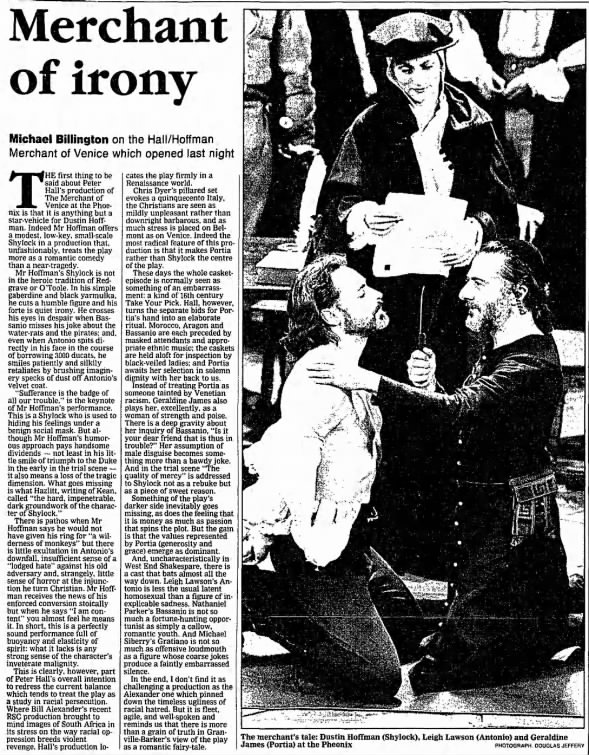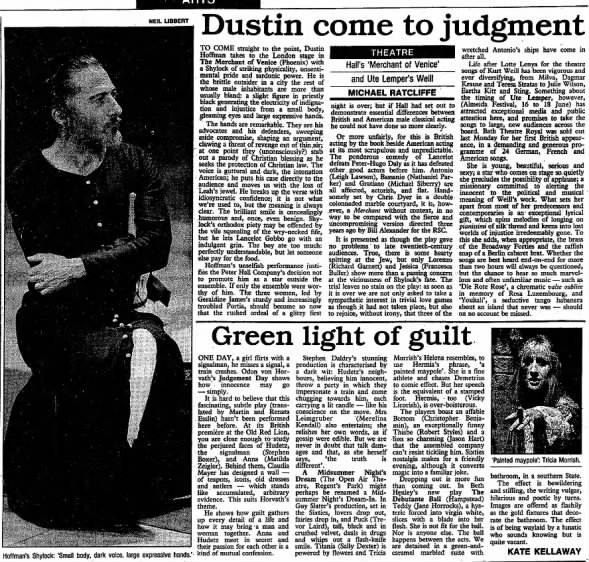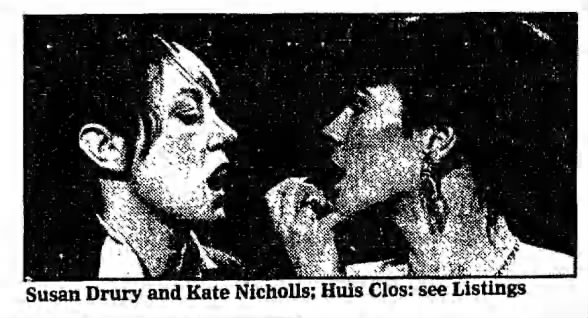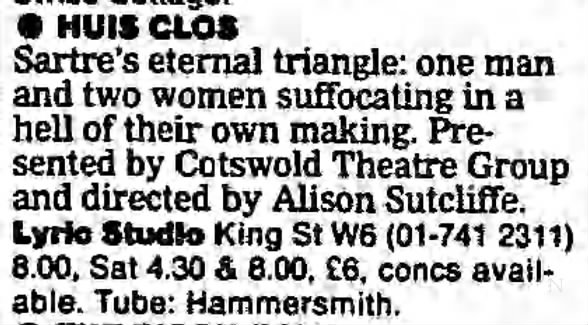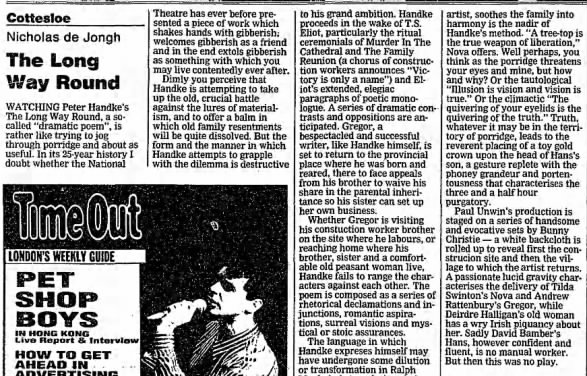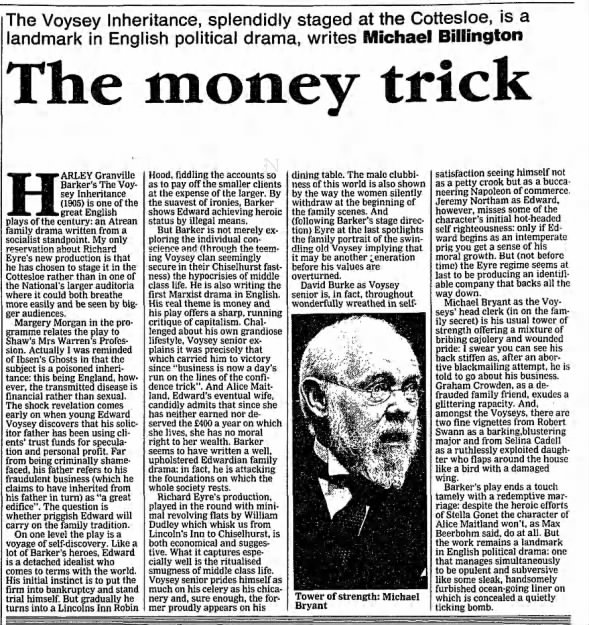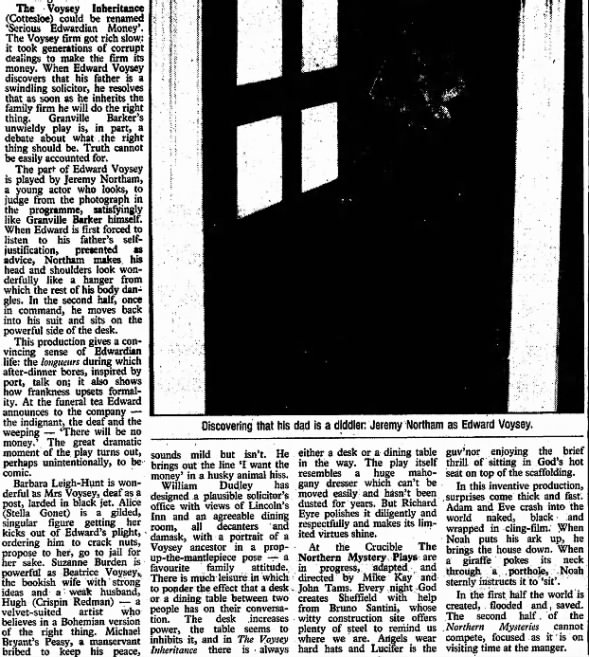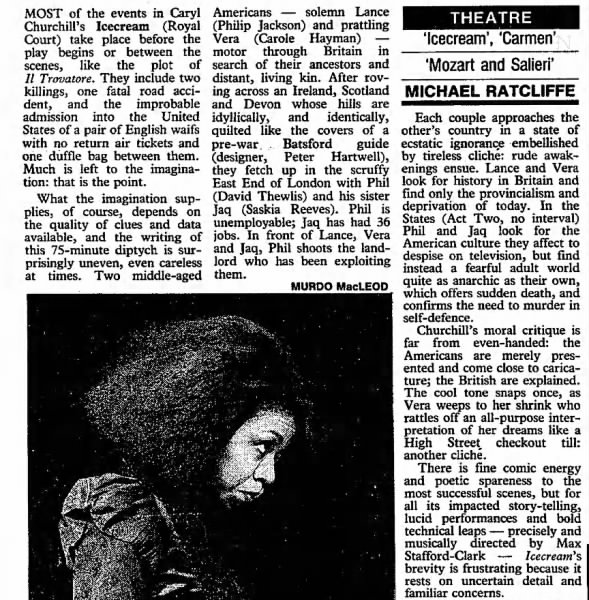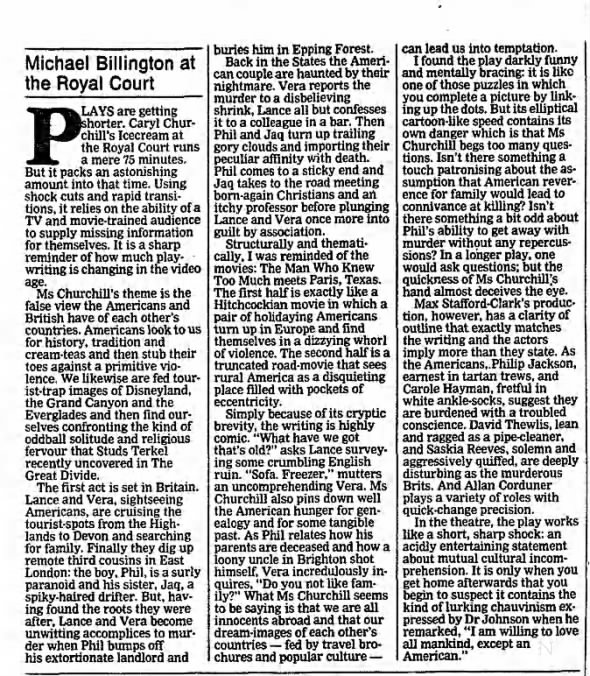I remember this play, production and indeed the whole evening very well.
I had long been a fan of Poliakoff’s plays when I went to see this one, having read a great many of his plays and seen a few of the filmed versions of his works, but this was I think only the second time I’d got to see one of his plays on the stage.
My log says:
Very good. We sat next to Poliakoff himself and went on to Daniel [Scordel]’s party afterwards.
“We”, in this instance, was me and Annalisa de Mercur. The evening we attended was a preview – I think possibly even the first or one of the first previews.
I recall us getting to The Pit a little late and struggling to see any available pairs of seats once we got in. Annalisa made a bee-line for some empty seats that were clearly marked “reserved” with Stephen Poliakoff himself sitting next to those reservations.
“You can’t sit there”, I said to Annalisa, “they’re reserved”.
“It’s OK, you can sit there”, said Stephen Poliakoff.
“Are you sure it’s OK?” I said to him.
“Yes, they won’t all be needed”, he said.
“Are you something to do with the production?”, asked Annalisa, in the sort of questioning tone that only she might use in such circumstances.
“Stephen’s the playwright”, I said to her, “so I think he knows what he’s talking about”.
“Thank you”, I said to Stephen.
“That’s all right”, said Stephen. Then he said, “I wish they wouldn’t put my picture on the programme. I don’t like being recognised”.
“I’d have recognised you anyway”, I said.
Stephen Poliakoff half-smiled at me.

I really liked this play and the production. It is not Poliakoff’s finest, but it was a very interesting play, covering (as Poliakoff often does) societal issues and family issues in one fell swoop.
Superb cast, including my first live look at several truly excellent stage folk: Michael Pennington, Simon Russell Beale, Lesley Sharpe and Ralph Fiennes to name but four.
Here is the Theatricalia entry for this production.
Here’s Michael Billington’s Guardian take on it:
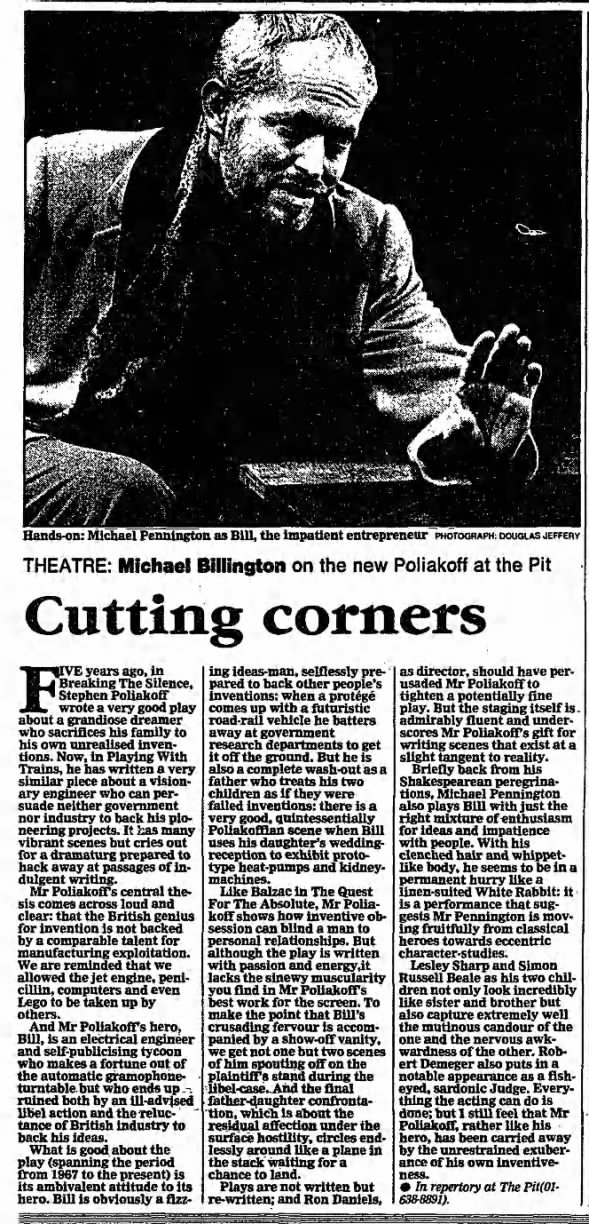 Billington on Trains Fri, Dec 1, 1989 – 36 · The Guardian (London, Greater London, England) · Newspapers.com
Billington on Trains Fri, Dec 1, 1989 – 36 · The Guardian (London, Greater London, England) · Newspapers.com
Below is Kate Kellaway’s take in The Observer:
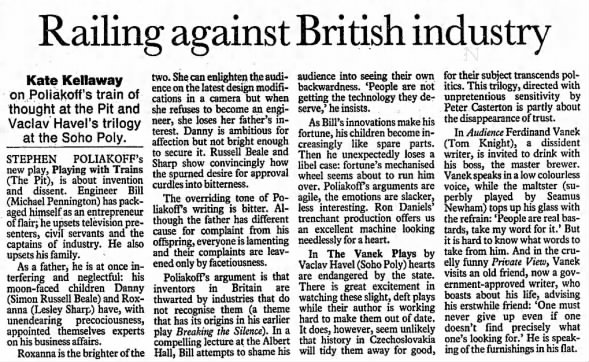 Kellaway on Trains Sun, Dec 3, 1989 – 43 · The Observer (London, Greater London, England) · Newspapers.com
Kellaway on Trains Sun, Dec 3, 1989 – 43 · The Observer (London, Greater London, England) · Newspapers.com
Annalisa was not as keen on this piece as I was. To be honest, she wasn’t very interested in theatre, but tended to come along to stuff I’d booked with Bobbie in mind if/when Bobbie wasn’t available.
I think it might have been during the interval of this one, in reference to a family row during the piece, that Annalisa commented, “I don’t much like this sort of drama – I can get all this at home.
It reminded me of one of my favourite Peter Cook quotes:
I go to the theatre to be entertained… I don’t want to see plays about rape, sodomy and drug addiction… I can get all that at home.
Playing With Trains did not have rape, sodomy or drug addiction as far as I recall. I do also remember suggesting that Annalisa keep her opinions to herself until we were clear of The Pit given that it was a preview night and it wasn’t the cast and crew’s fault that I had taken a guest who was not so keen on theatre.
We legged it across town to Daniel Scordel’s pad on Trinity Road, where the party was in full swing once we got there. I think Daniel was going out with Maz (Marianne Tudor Craig) by then, but I think that relationship was still quite new. I don’t remember much about the party other than it being rather a good one.
I do specifically remember Daniel’s kid sister, who was I think 17 or 18 at that time, grooving to a particular dance tune that I liked but did not recognise, so I asked her, after the record finished, what it was.
“You haven’t heard of it?” she said, “but it’s been in the charts for weeks. You’re sad”.
I’m pretty sure it was Ride On Time by Black Box
Like Daniel, I was just 27 at that time. It was the very first time I remember feeling old.



